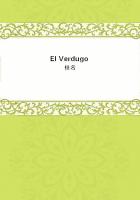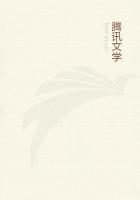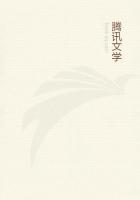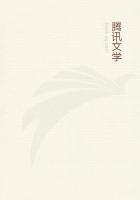At the Sources of the Missouri The explorers were now (in the last days of July, 1805) at the head of the principal sources of the great Missouri River, in the fastnesses of the Rocky Mountains, at the base of the narrow divide that separates Idaho from Montana in its southern corner. Just across this divide are the springs that feed streams falling into the majestic Columbia and then to the Pacific Ocean. As has been already set forth, they named the Three Forks for President Jefferson and members of his cabinet.
These names still survive, although Jefferson River is the true Missouri and not a fork of that stream. Upon the forks of the Jefferson Lewis bestowed the titles of Philosophy, Wisdom, and Philanthropy, each of these gifts and graces being, in his opinion, "an attribute of that illustrious personage, Thomas Jefferson," then President of the United States. But alas for the fleeting greatness of geographical honor!
Philosophy River is now known as Willow Creek, and at its mouth, a busy little railroad town, is Willow City. The northwest fork is no longer Wisdom, but Big Hole River; deep valleys among the mountains are known as holes; and the stream called by that name, once Wisdom, is followed along its crooked course by a railroad that connects Dillon, Silver Bow, and Butte City, Montana. Vulgarity does its worst for Philanthropy; its modern name on the map is Stinking Water.
On the thirtieth of July, the party, having camped long enough to unpack and dry their goods, dress their deerskins and make them into leggings and moccasins, reloaded their canoes and began the toilsome ascent of the Jefferson. The journal makes this record:--"Sacajawea, our Indian woman, informs us that we are encamped on the precise spot where her countrymen, the Snake Indians, had their huts five years ago, when the Minnetarees of Knife River first came in sight of them, and from whom they hastily retreated three miles up the Jefferson, and concealed themselves in the woods.
The Minnetarees, however, pursued and attacked them, killed four men, as many women, and a number of boys; and made prisoners of four other boys and all the females, of whom Sacajawea was one.
She does not, however, show any distress at these recollections, nor any joy at the prospect of being restored to her country; for she seems to possess the folly, or the philosophy, of not suffering her feelings to extend beyond the anxiety of having plenty to eat and a few trinkets to wear.
"This morning the hunters brought in some fat deer of the long-tailed red kind, which are quite as large as those of the United States, and are, indeed, the only kind we have found at this place.
There are numbers of the sand-hill cranes feeding in the meadows: we caught a young one of the same color as the red deer, which, though it had nearly attained its full growth, could not fly; it is very fierce, and strikes a severe blow with its beak. . . .
"Captain Lewis proceeded after dinner through an extensive low ground of timber and meadow-land intermixed; but the bayous were so obstructed by beaver-dams that, in order to avoid them, he directed his course toward the high plain on the right.
This he gained with some difficulty, after wading up to his waist through the mud and water of a number of beaver-dams. When he desired to rejoin the canoes he found the underbrush so thick, and the river so crooked, that this, joined to the difficulty of passing the beaver-dams, induced him to go on and endeavor to intercept the river at some point where it might be more collected into one channel, and approach nearer the high plain.
He arrived at the bank about sunset, having gone only six miles in a direct course from the canoes; but he saw no traces of the men, nor did he receive any answer to his shouts and the firing of his gun.
It was now nearly dark; a duck lighted near him, and he shot it.
He then went on the head of a small island, where he found some driftwood, which enabled him to cook his duck for supper, and laid down to sleep on some willow-brush. The night was cool, but the driftwood gave him a good fire, and he suffered no inconvenience, except from the mosquitoes."
The easy indifference to discomfort with which these well-seasoned pioneers took their hardships must needs impress the reader.
It was a common thing for men, or for a solitary man, to be caught out of camp by nightfall and compelled to bivouac, like Captain Lewis, in the underbrush, or the prairie-grass. As they pressed on, game began to fail them. Under date of July 31, they remark that the only game seen that day was one bighorn, a few antelopes, deer, and a brown bear, all of which escaped them.
"Nothing was killed to-day," it is recorded, "nor have we had any fresh meat except one beaver for the last two days; so that we are now reduced to an unusual situation, for we have hitherto always had a great abundance of flesh."
Indeed, one reason for this is found in Captain Lewis's remark:
"When we have plenty of fresh meat, I find it impossible to make the men take any care of it, or use it with the least frugality, though I expect that necessity will shortly teach them this art."
We shall see, later on, that the men, who were really as improvident of food as the Indians, had hard lessons from necessity.
Anxious to reach the Indians, who were believed to be somewhere ahead of them, Captain Lewis and three men went on up the Jefferson, Captain Clark and his party following with the canoes and luggage in a more leisurely manner.
The advance party were so fortunate as to overtake a herd of elk, two of which they killed; what they did not eat they left secured for the other party with the canoes. Clark's men also had good luck in hunting, for they killed five deer and one bighorn. Neither party found fresh tracks of Indians, and they were greatly discouraged thereat.
The journal speaks of a beautiful valley, from six to eight miles wide, where they saw ancient traces of buffalo occupation, but no buffalo.

